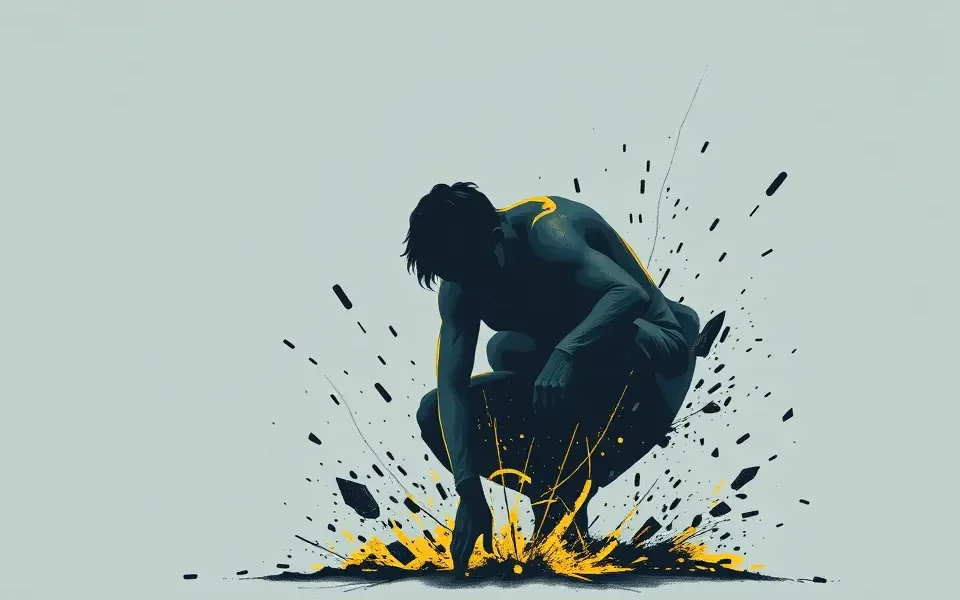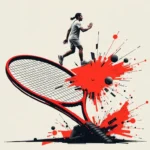Max Purcell, the 2022 Wimbledon doubles champion and 2023 US Open doubles champion, has accepted an 18-month ban for breaching anti-doping rules, a decision that he says has significantly impacted his mental and physical well-being. The Australian tennis star revealed that the ongoing case has led to the development of “nervous and anxious tics,” along with sleep and eating difficulties.
The Infusion Incident
The International Tennis Integrity Agency (ITIA) announced Purcell’s suspension on Tuesday, April 29, 2025, after he admitted to receiving intravenous (IV) infusions exceeding the allowed limit. In December 2023, Purcell received two IV infusions of more than 500ml each while in Bali, after feeling unwell. The World Anti-Doping Code and the Tennis Anti-Doping Programme (TADP) limit IV infusions to 100ml within a 12-hour period.
Purcell stated that he informed the medical clinic administering the infusions that he was a professional athlete and that the infusion needed to be below the 100ml limit. The ITIA accepted that the violation was unintentional, and that all substances in the infusion were WADA-approved. They also acknowledged that the infusion provided no performance-enhancing benefits. Despite these factors, Purcell was still handed an 18-month ban.
Mental Health Toll
Purcell has been vocal about the toll the case has taken on his mental health. In a statement released on Instagram, he described how the situation has “seriously affected my quality of life,” leading to insomnia, disordered eating, and a reluctance to be alone. He added that he developed “nervous and anxious tics” that he continues to struggle with daily.
“This case has been going on for months, seriously affecting my quality of life, from being unable to sleep and eat properly and refusing to be by myself, to developing nervous and anxious tics which I still currently battle day to day,” Purcell said. “I couldn’t sit and enjoy anything without the thought of the case and the endless possibilities of what sanction I would receive.”
Cooperation and Sanction Reduction
Purcell’s cooperation with the ITIA led to a 25% reduction in his sanction. The ITIA acknowledged his “full co-operation and information sharing” as a mitigating factor. His suspension is backdated to December 2024, when he voluntarily entered a provisional suspension. He will be eligible to return to tennis on June 11, 2026.
Forfeited Winnings and Ranking Points
In addition to the suspension, Purcell will forfeit any prize money and ranking points earned between December 16, 2023, the date of the violation, and February 3, 2024, the date of his first negative doping test following the incident. This includes prize money he earned last January. During his suspension, Purcell is prohibited from playing, coaching, or attending any tennis events sanctioned by the ATP, WTA, ITF, or national associations.
ITIA’s Stance
Karen Moorhouse, chief executive of the ITIA, emphasized that Purcell’s case highlights that anti-doping rules extend beyond prohibited substances.
“This case does not involve a player testing positive for a prohibited substance but demonstrates that the anti-doping rules are broader than that,” Moorhouse stated. “It also shows that the ITIA considers intelligence from a range of sources with the overriding aim to protect everyone covered by the tennis anti-doping rules, and ensure a level playing field for all.”
A Devastating Blow
The ban comes at a time when Purcell was at the peak of his career, with significant earnings in 2024 alone. The suspension not only impacts his professional career but also his financial stability.
Other Tennis Doping Cases
Purcell is not the first high-profile tennis player to face doping-related sanctions. Other notable cases include:
- Marin Cilic: In 2013, Cilic was suspended for nine months after testing positive for nikethamide, a stimulant. The Independent Tribunal found that Cilic ingested the substance inadvertently through contaminated glucose tablets.
- Viktor Troicki: Also in 2013, Troicki was banned for 18 months for failing to provide a blood sample at the Monte Carlo Masters.
- Jannik Sinner: In 2024, Sinner accepted a three-month ban for what was deemed an inadvertent doping breach involving an anabolic agent.
- Iga Swiatek: Also in 2024, Swiatek accepted a one-month suspension after testing positive for trimetazidine, allegedly due to contamination of sleep medication.
These cases highlight the complexities and varying circumstances surrounding doping violations in tennis, emphasizing the importance of stringent anti-doping measures and player education.
Intravenous Infusions and Anti-Doping Rules
The World Anti-Doping Agency (WADA) prohibits intravenous infusions of more than 100ml within a 12-hour period, except for legitimately received hospital treatments, surgical procedures, or clinical diagnostic investigations. This regulation aims to prevent athletes from using IV infusions to:
- Artificially enhance performance by increasing blood volume or masking the use of prohibited substances.
- Administer prohibited substances intravenously.
- Circumvent the regular doping control process.
While Purcell’s case did not involve prohibited substances, exceeding the volume limit of IV infusions still constitutes a violation of anti-doping rules.
Purcell’s Future
Purcell has expressed his relief that the case is finally over and that he can move on with his life. However, the 18-month ban will undoubtedly have a significant impact on his career. It remains to be seen how he will bounce back upon his return to the sport in 2026.








No Comment! Be the first one.